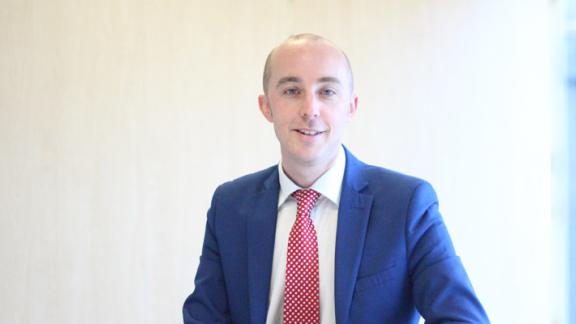Places will change, with or without our input

Regeneration projects shape our population and are happening all the time. We should grab these opportunities and bring our integrated care systems to the table from the start – and our involvement would be welcomed.
As citizens we tend to keep a close eye on local developments; whether they be a new commercial opening on the high street, a change to our favourite bus route or plans for a major housing estate down the road. I have often found it strange then that as people working in healthcare, we don’t seem to be as curious. As I type this, there will be hundreds, if not thousands, of regeneration schemes underway across the country that will change the populations we serve and the places we serve in – how many are the NHS actively trying to understand, shape and benefit from?
Why getting involved is important
‘Regen’ is a constant in our professional lives, whether we know it or not. It will also happen, whether we engage in it or not, and this point is very important.
Earlier this year, the NHS Confederation co-hosted a site visit for the relevant integrated care system (ICS) leadership to one of the UK’s largest regeneration schemes, situated in the Midlands. Discussions have been underway for a few years now, but the development is entering a key phase. Prior knowledge of the plans and where and how health might like to be involved was limited, but there was genuine interest from both sides in testing what generational change might look like. Additional NHS capacity, integration and co-location of public services, high-value manufacturing, healthy housing, education and training – we discussed it all. The visit, albeit focused on a specific part of the country, raised several general learning points that should be of wider interest.
- Regen, and certainly of this scale, will radically change the populations we serve. As a bare minimum, being around the table early on in discussions gives systems a much better understanding of the future around which to understand service needs and provision. It really is no excuse for acting surprised about new patient flows when the local paper has been talking about this for months.
- This is where it gets interesting – we can use local regen plans to sketch our own integrated care strategies against a longer-term reality. Given our sector’s growing pressures, it’s not enough just to plan for new population growth. We should be using the changing context in which we will operate to frame and build a new strategic service model that is focused on prevention and population health. Trying to build a pathway to a different health and care future that does not start in the acute is tricky at the best of times. Externally driven change gives system leaders the leverage to overcome the short-termist, isolated or hyperlocal objections we know will come from within our own organisations. To coin a phrase, this enables us to take ‘a leap of thought, not just a tweak of thought’.
- Regen is the bridge to local partners and in particular to delivering on the fourth ICS purpose of helping the NHS support broader social and economic development. The speed at which our discussions in the Midlands turned to the mix of potential capital and revenue streams that were open to partners was striking. Get into conversations at the right moment and our sights should be set far higher than simply focusing on small-scale, section 106 funding. Add in the emerging devolution discussions taking place across large parts of the country and we can develop a much better understanding of the ‘flex’ our partners collectively have in terms of controlling local levers over policy, resourcing and influence. Long-term partnerships being formed which build trust and open doors to short-term opportunities in parallel.
- What do our partners want from us?
The right kind of investment
One word that kept coming up was commitment. The local authorities and development companies leading regeneration schemes are looking to turn masterplans into viable investable propositions that can attract the right ‘kind’ of finance and enterprise. It is no exaggeration to say that ICS backing for these initiatives, publicly and privately, can make the difference, and particularly in the early stages where momentum is key. We all benefit from good growth.
Finally, this was a real reminder, if one was needed, that this is more about ICSs and the NHS joining existing local conversations rather than starting afresh. Social and economic development is as old as the places in which we live and work – you can’t just pick and choose when to engage.
The NHS Confederation will continue to support ICS and NHS leaders to understand local regeneration schemes and how to maximise the opportunities. Whether large scale or hyperlocal, collectively we can support our populations, develop our estates, broaden our workforce, inspire our innovation and remodel our services. We all lose out if we aren’t around the table, whether at home or at work.
Michael Wood is head of health economic partnerships at the NHS Confederation. Follow him on Twitter @NHSLocalGrowth



